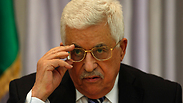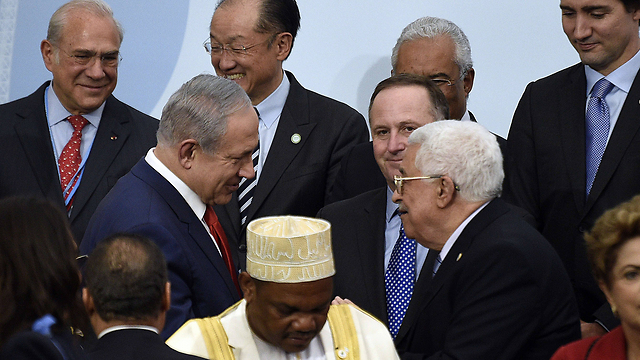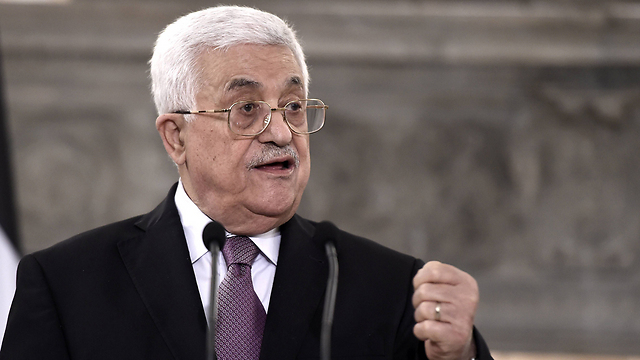
Abbas isn't going anywhere yet
Despite the disappointments, frustrations and deadlock, the Palestinian president is clinging on to power and has not given up hope of seeing a Palestinian state.
Mahmoud Abbas is frustrated and disappointed. He has no good news for his people. But despite the disappointment, despite the fact that for over 10 years his tenure has been idling in neutral and despite his advanced age, 81, Abbas is not ready to shut up shop and give up on his rule.
He continues to following his policy towards a Palestinian state in the West Bank and Gaza, alongside the State of Israel, on 22 percent of the territory of Mandatory Palestine. This, he argues, is a huge concession on the part of the Palestinians.
Last week, Abbas made what was from his perspective another small step towards his goal: He ordered the registration of the Palestinian passport, with the first page of each document featuring the words "State of Palestine."
There are those who will scorn the move as another detail, but these symbols have a power of their own. Abbas is continuing on his path despite most of his people feeling that they are in a deadlock, with no hope for a better future. The establishment of a Palestinian state is to them a dream rather than a realistic prospect.
This despair, which gave rise to the stabbing attacks, has not succeeded in dragging the Palestinians into an armed struggle from the school of Arafat or producing the suicide bomber model of the second intifada.
The brakes attached to Abbas' policy, which has successfully diverted the ethos of armed struggle to that of popular resistance, which sanctifies the stone and the knife. Over the past few weeks he has been trying to stem the tide of violence, succeeding in Ramallah but failing in Hebron and Jerusalem.
In the reality of 2016, being the Palestinian president is a near-impossible task. There are more than 420,000 settlers in the West Bank; the conflict is taking on increasingly religious dimensions, moving away from its national and territorial roots; the political process has been in deep freeze since 2009; the disappearing Israeli left no longer helps and the discourse of peace in Israeli society has evaporated; the prime minister ignores him and even dismissed their handshake in Paris as "protocol."

The international stage is almost the sole source of legitimacy for Abbas, but he is not getting much satisfaction there either. The Obama administration despairs of the conflict, Europe is preoccupied with refugees and terrorism, the complex Arab world has stopped being interested in the Palestinians. Even worse, for most Palestinians Abbas is no longer relevant. They are waiting for him to go, waiting for a leader who will imbue the struggle with a new spirit.
Abbas is not afraid to clash with senior PLO officials in order to maintain his position. Mohammed Dahlan, who was breathing down Abbas's neck, was expelled from the territories. Yasser Abed Rabbo, former secretary-general of the PLO, was fired. Salam Fayyad, former prime minister of the Palestinian Authority, was pushed out of the Muqata'a. He prevented a Fatah conference from taking place and also repeatedly delayed a Palestinian National Council conference. He prevented a new leader from springing up who might be liable to threaten his position.
Yet it's still too early to write off his rule. Abbas, the last leader from founding generation of the PLO and Fatah, is not ready to give up on Palestinian national accomplishments. In his view, the establishment of a Palestinian state is a question of time, meaning he therefore needs to hold on to his position and strengthen what is already in place.
Abbas doesn't believe that there will be even small steps in the political process under a Netanyahu government. He believes that even though their situation is desperate, in the long-term things will play out well for the Palestinians. "Patience," he tells his people. "We've been under occupation for 49 years, we can stay in this situation for many more years. The occupation is creating a bi-national state, Israel won't exist for much longer."
Dr. Ronni Shaked, Yedioth Ahronoth's former correspondent and commentator on Palestinian affairs, is a research fellow at the Harry S. Truman Research Institute for the Advancement of Peace at Hebrew University.











